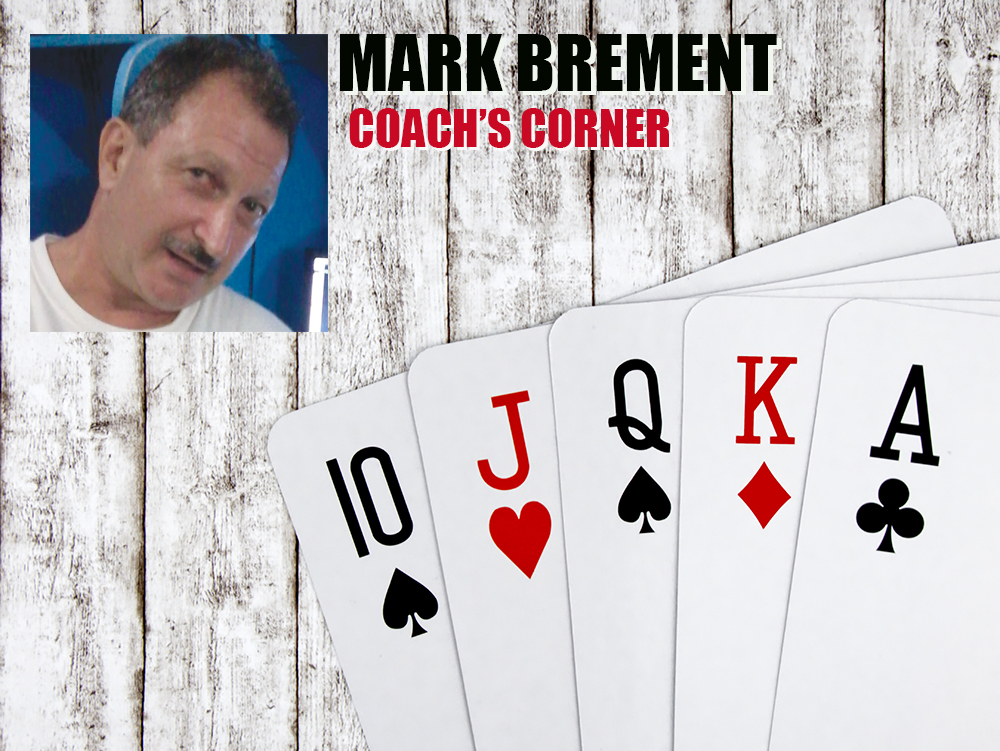Poker is a complex game. Unlike most hobbies, success in this game is measured in money. A unique aspect of poker is that often a player with more knowledge than another player, earns less money.
How is this possible? Perhaps the more skilled player has a higher propensity to tilt. Perhaps the player with less knowledge is more aggressive and his approach to the game earns him more money.
This list of goes on, which leads me to these questions: How does one become a better player? Why is it so hard to improve?
While reviewing some notes on my active students, I think it’s worthwhile to explore a few ideas.
IDEA 1: After working with a student for several months and reviewing his results, a hand occurred where the student called a river bet and won a really nice pot.
His opponent missed a straight draw, but when a flush materialized, he saw a spot and took a reasonable shot at a bluff. Based on the result, you’d think the winner of the pot had made a great play.
For me, as a poker coach, I felt I had found a leak. Plugging leaks is my business. In poker, the result of a hand in question may run contrary to the correct play, just often enough where finding leaks is not quite as easy as it sounds.
In coaching solid players who have read books and do fairly well at improving, it’s not quite as easy as when coaching a beginner.
For example, in golf, going from an 18 handicap to a 12 is much easier than going from a two to scratch. There are two points here: Results don’t necessarily equate to the right play. Utilizing bluffs is an important concept to winning play.
IDEA 2: It strikes me as reasonable to share when I have a student who is subject to large swings. He’s simply getting it all-in with too much frequency.
It’s a great idea to record all your all-in hands with as much accuracy as possible. In a three- or four-hour session, it’s fine to never get it all-in.
If you found this statement to be incredible, congratulations; you just uncovered a leak.
Also, don’t confuse a hand where you push and gain fold-equity as to when you call a push. These are different situations.
The best thing you can do to improve is to start a weekly poker group.
By reviewing and sharing hands, you will form a team of players who all improve.
Over the course of a year, the results will prove startling. In the meantime, drop a dime and gimme a call. I build winners.
— Mark Brement has spent 15 years teaching and coaching all facets of poker, including at Pima CC. Email him at brementmark@gmail.com.



